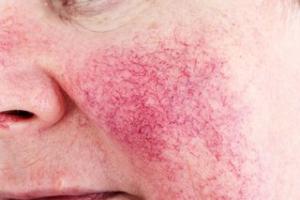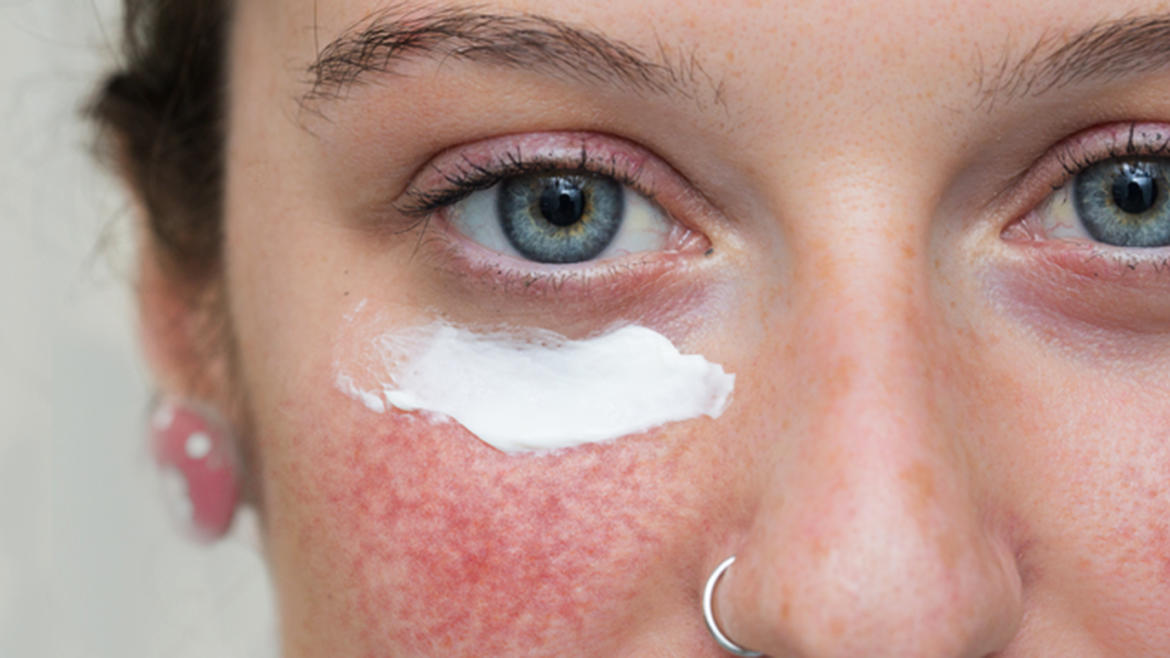Rosacea is a long-term inflammatory skin condition that usually occurs on the face and affects one in 10 people in the UK.
The main subtypes are:
- Erythematotelangiectatic – permanent redness and often some itching
- Papulopustular – permanent redness with some bumps and pustules
- Phymatous – skin thickens and can develop nodules
- Ocular – dryness and irritation of the eyes and eyelids
- Neurogenic – a strong discomfort in the skin that may stem from neurological or psychological reasons *
 There are several contributing factors to the condition of fragile weakened capillaries. Excess dead cell material creates a negative impact on the underlying vessels causing the capillaries to become stretched and weak. Alternatively, the skin may not be performing due to poor oxygenation. In this situation, angiogenesis occurs, a condition where the body grows more blood vessels in order to get more oxygen in the area.
There are several contributing factors to the condition of fragile weakened capillaries. Excess dead cell material creates a negative impact on the underlying vessels causing the capillaries to become stretched and weak. Alternatively, the skin may not be performing due to poor oxygenation. In this situation, angiogenesis occurs, a condition where the body grows more blood vessels in order to get more oxygen in the area.
A quick fix is to cauterise (IPL) these capillaries in order to stop the blood flow through the fragile capillaries. However, in the long term the skin function and oxygenation of the tissue needs to improve to prevent the condition from reoccurring. Rosacea is defined by a lack of structural integrity, transepidermal water loss and an impaired immune response. If left untreated, rosacea can be stubborn to revise and disfiguring.
Early stage rosacea exhibits redness, inflammation, and may even appear a little bruised. Late stage will have acne like pustules and watery lesions. **
There is no single approach to treat rosacea. In our Clinic we offer different treatments to help with this skin condition such as chemical peels and DMK Enzyme treatment (soon IPL).
*Professional beauty – Oct 2020 p.61, 63
*DMK Skin Revision p. 27,28

